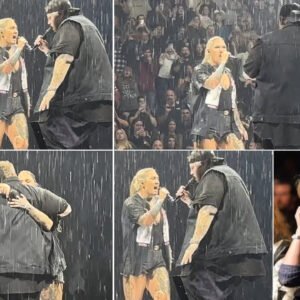A job interview can either land you the job you want in your lap or cause a potential employer to immediately throw your application documents in the bin.
Think of that face-to-face meeting as your only opportunity to make a positive impression and convince the person in charge that you are the right person to fill the open position.
Unfortunately, quick language and nervousness can often destroy the candidates’ months of preparation and create the wrong impression on the potential employer. Today, the competition in the labor market is so great that it is a real miracle to be called for an interview.

Well, when you get a chance to stand out, you shouldn’t allow yourself to throw it away. If you’re looking for a new job, here are some things you shouldn’t say at your first interview:
“Sorry I’m late, but.. (excuse).”
Being late only comes into play if you want to start the job interview off in a bad way. Of course, that’s not your goal. Punctuality is crucial – it speaks to your motivation and your discipline.
Excuses like “My bus ran away” , “My car broke down” , “It’s not my fault. The traffic is terrible” won’t change the fact that you’re running late.

Being late will be perceived as your negative side, and it sends a signal that you are a disorganized person who does not respect other people’s time.
“I have to answer the call, it’s very important.”
If the phone call is more important than your employment, go ahead and take it. Such behavior is bad, immature and gives the impression of an uncultured person.
Also, texting is not an option you should consider. The best way to avoid this mistake is to turn off your phone before entering the interview.
“I don’t know.”
Golden rule of the job interview: Never say you don’t know something. Instead, say that you can’t remember at the moment or that you will do some research and find out. In fact, any answer would be better than “I don’t know.”
“Weaknesses?” I have no weaknesses.”
Nobody is perfect. We all have weaknesses, so saying this sentence will not make you better than others.

Before you go to a job interview, think about what your weaknesses are. But don’t list them if they are critical to the job.
For example, if the job you’re applying for involves deadlines, don’t say you perform poorly under pressure. Instead, mention another weakness of yours that is not crucial to the job you are applying for. Don’t forget to mention that you are working on improving it.
“My weakness is that I work too much/I’m a perfectionist.”
Answers like “I work hard, so I take my work home” , “I’m a perfectionist and pay too much attention to details” are standard, well-known clichés, so saying them will make you look insincere. Instead of trying to be part of the crowd, come up with an original answer that will make you stand out from the crowd.
“My previous boss was horrible and my colleagues were chronic gossipers.”
No matter how much you hate your former boss, no matter how much your colleagues annoyed you and filled you with negative energy, bad comments about them are unprofessional.

Instead of gossiping and criticizing as soon as you are asked the question “Why did you leave your last job?” , explain that your views did not match those of the previous employer, that you had different ideas and goals, etc.
You can say “I was ready for new challenges” or “I didn’t have enough room for advancement in my previous job.”
“I don’t have any work experience.”
Even so, don’t let these words come out of your mouth. Yes, you should be honest, but this confession will not bring you extra points. Try to think of several places where you have had the opportunity to demonstrate your skills that are related to the job you are applying for. Mention your internship or your involvement in a particular project.
“So what does your company do?”
Candidates are expected to go to the interview with prior research about the company and the job, so asking this question is absolutely not allowed. Being uninformed can only signal that you are lazy, unmotivated and uninterested – characteristics that will certainly not land you the job you want.

“I was fired.”
Even if that is the reason why you are unemployed , skip the statements “I was fired” and “I was fired” at the interview because they leave a bad impression.
Although your abilities may not have been the reason for your dismissal, your potential employer may doubt whether you are qualified enough for the vacancy you are applying for . Instead of “I was fired” , say something like “My boss and I had different visions for the future and the direction in which the company will develop” .
But don’t lie that you weren’t fired if that was the case, because the credibility of your statement can easily be checked.
“No, I don’t have any questions.”
If you want to prove to the interviewer that you are NOT interested in the company and the position you applied for, then feel free to avoid the opportunity to learn more.
But if you’re really fighting for the job, before you go to the interview think of at least three questions that you can ask when it’s your turn to answer the final ” Do you have any questions?”






